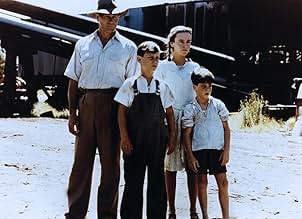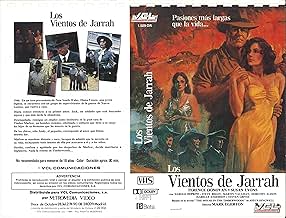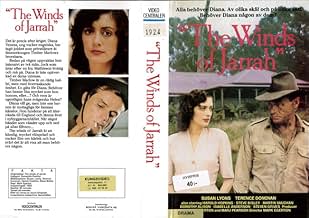Australia 1946. A young woman escapes from an unhappy affair to become tutor to three children who are being raised by their uncle.Australia 1946. A young woman escapes from an unhappy affair to become tutor to three children who are being raised by their uncle.Australia 1946. A young woman escapes from an unhappy affair to become tutor to three children who are being raised by their uncle.
- Awards
- 1 nomination total
Bill McCluskey
- Tall Soldier
- (as Bill McClusky)
Featured reviews
At least the title can be partly explained by noting that the film was produced by the Film Corporation of Western Australia, one of its only three films. Jarrah is the name of the eucalypt that grows in southern Western Australia, and the film was originally intended to be shot at Pemberton WA, among the jarrah trees. For reasons unknown to me, it was filmed in Dorrigo NSW. It is said to be the first film based on a Mills & Boon novel, which in this instance was The House in the Timberwoods by Joyce Dingwell, 1959. The first screenplay was written by husband and wife Anne Brooksbank and Bob Ellis, tho Egerton preferred his own version. It was shot in Panavision by Geoff Burton, but I believe never released theatrically, so the exquisite cinematography has never been seen by cinema audiences.
This forgettable Australian movie is based on a Harlequin/Mills and Boon novel and might have been improved upon with better casting. Ironically, Isabelle Anderson in the small role of Helen Marlow, the errant mother of the 3 children British Diana Venness (Susan Lyons) comes to Australia to nanny, has more screen charisma than Lyons, who is photographed unflatteringly and whose British accent is questionable.
The screenplay gives Diana two suitors while she pines for the alcoholic, laconic 'Timber' (Terence Donovan), the owner of the rural Tallwoods property and uncle of the children. Timber's misogyny is demonstrated by "Women are creatures of deadly impulses", and to Diana, "I could eat you for breakfast but I prefer red meat to dry bone". Director Mark Egerton's nadir is having Diana in close-up drool over Timber woodblock axing in slow motion, though otherwise Donovan's performance is undermined by the way his underwear rides up in his trousers.
The screenplay also presents Diana as a victim by having her jilted by her British fiance, spied upon by the children when she undresses, and pushed into a river. However the illness of the youngest child Andy (Emil Minty) is left as unexplained as the title of the film, though a revealed affair makes the suggestion that Andy is a love child and his sickness therefore a punishment.
We get a howler in Diana to Timber, "You cut down people the way you cut down trees. You think you can plant others but you can't", and the lovely music score by composer John Stuart provides a romanticism that is unwarranted by the footage.
The screenplay gives Diana two suitors while she pines for the alcoholic, laconic 'Timber' (Terence Donovan), the owner of the rural Tallwoods property and uncle of the children. Timber's misogyny is demonstrated by "Women are creatures of deadly impulses", and to Diana, "I could eat you for breakfast but I prefer red meat to dry bone". Director Mark Egerton's nadir is having Diana in close-up drool over Timber woodblock axing in slow motion, though otherwise Donovan's performance is undermined by the way his underwear rides up in his trousers.
The screenplay also presents Diana as a victim by having her jilted by her British fiance, spied upon by the children when she undresses, and pushed into a river. However the illness of the youngest child Andy (Emil Minty) is left as unexplained as the title of the film, though a revealed affair makes the suggestion that Andy is a love child and his sickness therefore a punishment.
We get a howler in Diana to Timber, "You cut down people the way you cut down trees. You think you can plant others but you can't", and the lovely music score by composer John Stuart provides a romanticism that is unwarranted by the footage.
Did you know
- TriviaReviewed in 'Variety' dated 6 July 1983.
- Alternate versionsAround twenty minutes of the film were cut from the theatrical version for the movie's home video release in Australia.
Details
Contribute to this page
Suggest an edit or add missing content














